A totally unexpected result
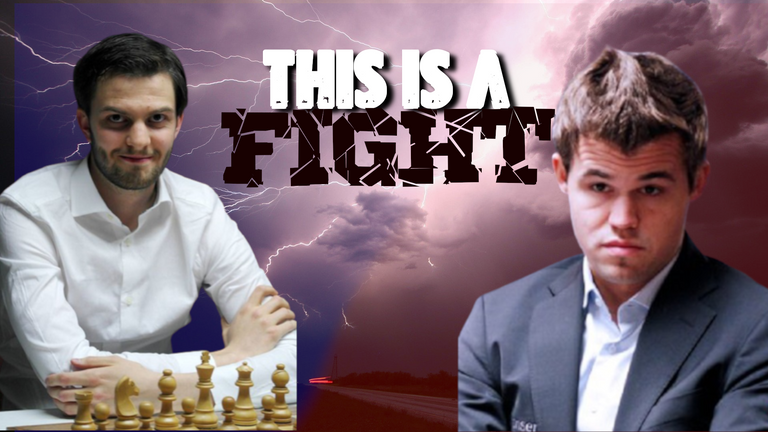

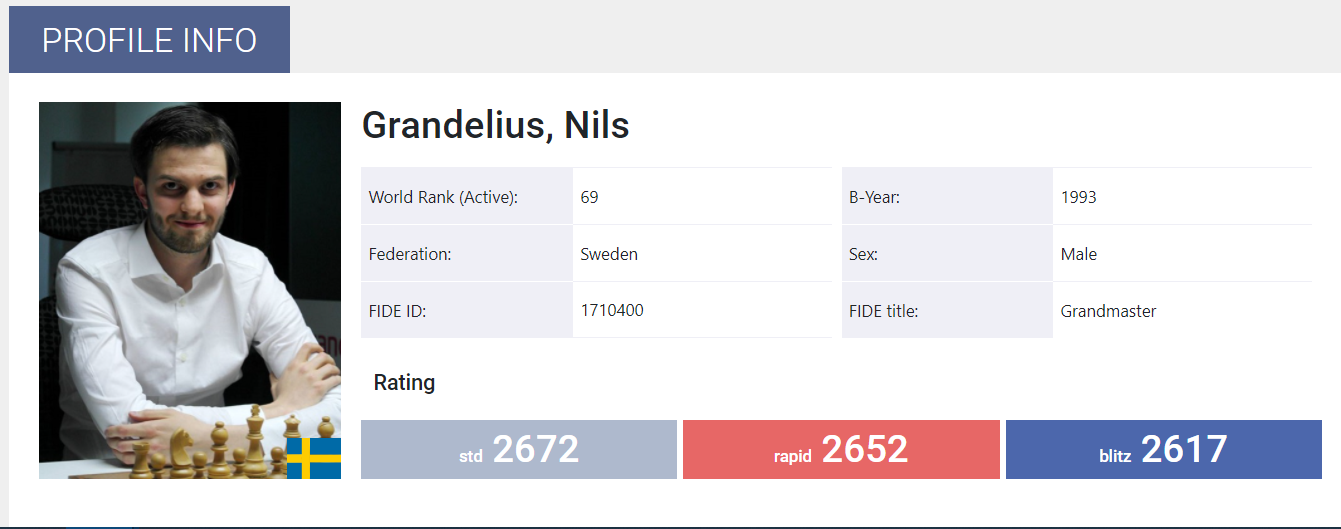
He is Nils Grandelius from Sweden, a super experienced chess Grandmaster with an Elo of 2672 points and is 28 years old.
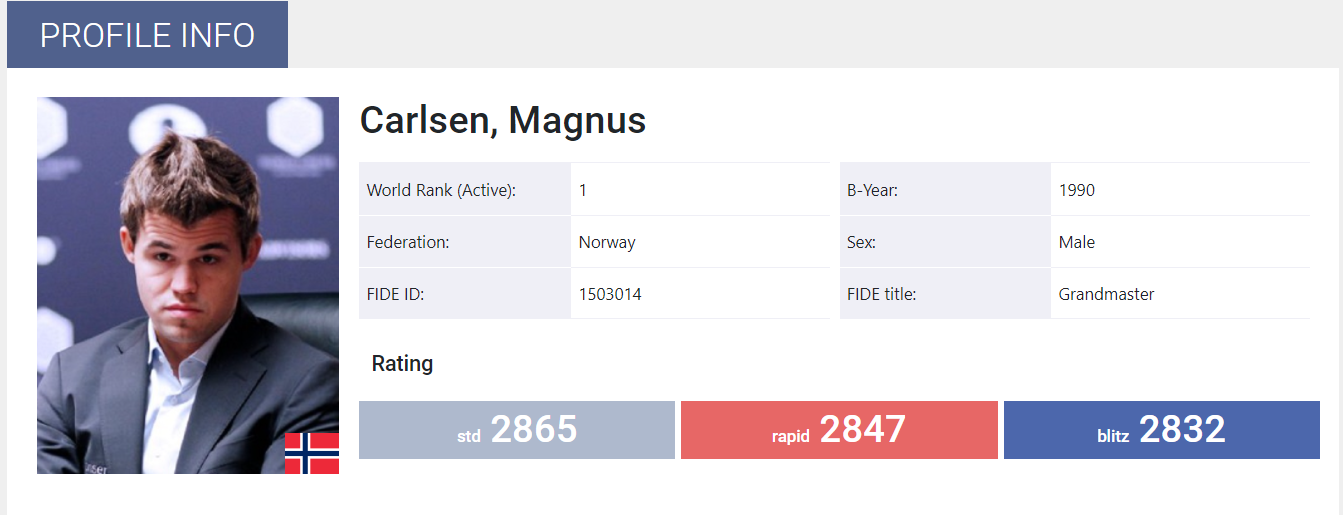
He is Magnus Carlsen, current World Chess Champion. He's from Norway, has a rating of 2865 points and is 30 years old.
Recently these two elite chess players had a very interesting encounter in the tournament TATA STEEL CHESS 2022 (https://tatasteelchess.com), a championship that brings together the best chess players in the world. The player from Sweden had to face who is considered by many as the best chess player of all time. This game would be a challenge that would test the preparation of Neils on the board.
Technically, the Norwegian player seemed to be "unbeatable", at least statistically speaking. Grandelius is ranked 69th in the world top and is 193 Elo points "weaker" than Magnus. For any lover of sports betting here seems like a golden opportunity, doesn't it? The number 1 faces the number 69, so the result is obvious, right? Well, the truth is that things are not so easy in this level.
Certainly, Cralsen was the favorite in this match. However, in chess there are several things that can decide a game, and favoritism is not enough to win. You could say that the Elo is a number that defines the world ranking of a player and establishes how strong he is. However, in a championship game the three results are still possible: win, lose, draw.
Perhaps in another sport the probability of victory taking into account favoritism could increase, for example in football:
According to the FIFA world ranking, Belgium is in the first place and United Arab Emirates is the 69th. This is a very high gap. So, if these teams had a match, what do you think the result would be? Did you get it?
Well, maybe you may say: "football is a team sport and chess is played individually" .... That's true. Let's compare the 1-69 gap with another sport. What about if we look at the tennis world ranking?
According to the The ATP Hugo Gaston is ranked 69th, while Novak Djokovic dominates and is at the top. I ask you once again, what would happen in a match between these two players? Let me know in the comments.
All right, let's go back to the game Grandelius vs Carlsen. SPOILER ALERT! The game ended in a draw. It seems that the 193 ELO points difference was not enough for the Norwegian to win. When you reach mastery in chess, the understanding of the positions becomes clearer, so if your level of calculation is more or less accurate, this will represent a more objective measure than simple statistical numbers. That's right, finding the good moves during the game is the skill that must be worked to overcome opponents who are stronger than us. As the Russian chess player put it:
“The move is there, but you must see it.” -Savielly Tartakower
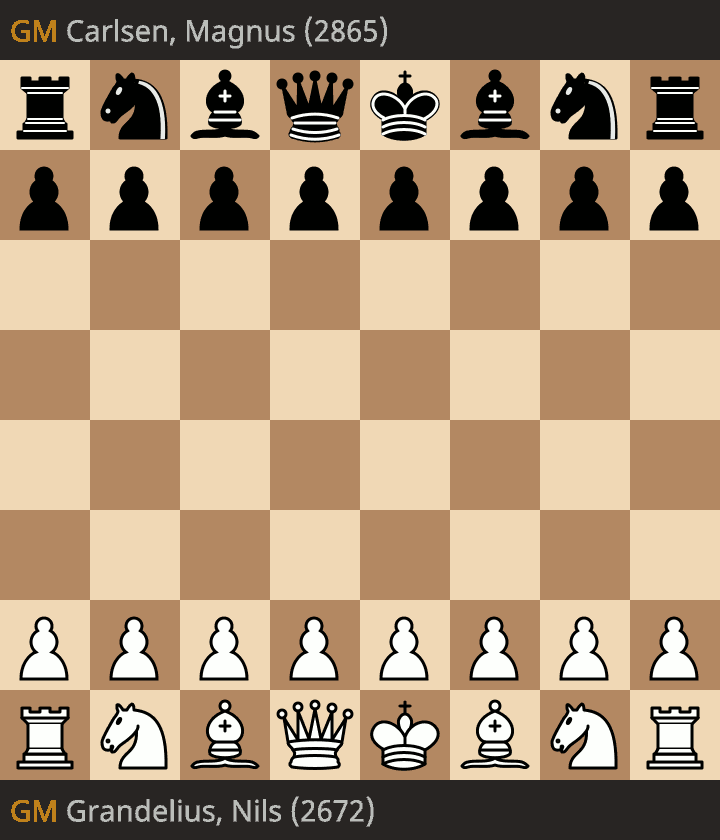
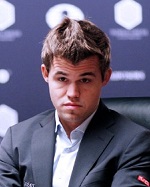
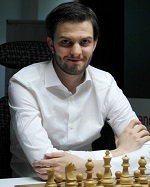
But let's analyze a little deeper. How is it that the 69th player in the world can tie with the number 1, that is, with the world champion and best chess player of all time? Here are some of the possible reasons that according to my humble opinion:
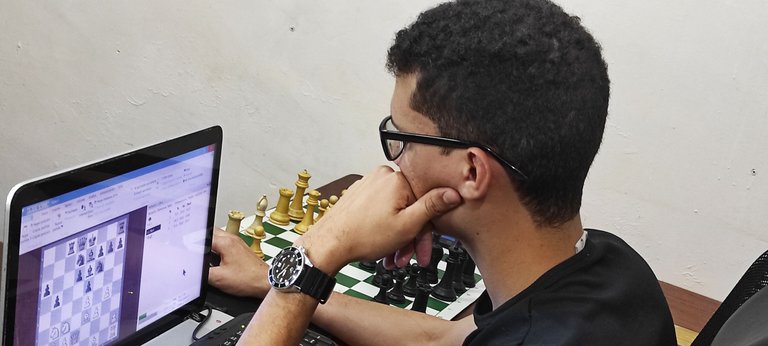
Technical Preparation - The engine assistance
We saw at the beginning that the Elo is an indicator of strength in a chess player. According to this, if your rating is high, then your said to have a high level. As you play tournaments this can go up or down. However, every game is different and there is always a chance "to do damage" in any match. If a player has reached the title of Grandmaster, his general vision of the game is quite deep. If we add to this a good opening preparation (the initial phase of the game), the possibilities of breaking the opponent increase considerably.
Taking into consideration the above, you could say that you could be hightly prepared for a game because of the available public information of games, tournaments and results. It is rather very easy to find databases which give you a very good clue of the openings and defenses used by a particular player. So, you can "predict" the first moves of a game and with previous help of the analysis engine you can add a variation that puts a challenge to the opponent. Of course, computers find moves faster and more accurate than humans can do. If we catch our opponent in one of the preparations, we will have accomplished a large part of the mission.
Of course, it is here where we see the struggle of preparation, because both contenders have more or less the same resources to get the information.
Something very important to mention is that chess has an absurdly high number of possible positions and games. Literally, we would need more than one universe to store all that information (but we will talk about this in another post :) ). This large number of possibilities makes the initial preparation somewhat rigorous, but many of these moves are not "objectively correct" and a Grandmaster is able to discard many moves that are not useful.
Then, by having the information of the "favorite openings" of our opponent, we can create a strategy to try to surprise him or her in his/her own comfort zone. The rise of analysis engines has brought a more dynamic character to the game. Today's chess isn't the same as the chess of 100 years ago, for example. Many players have chosen to vary their openings to avoid falling into unwanted preparations. They even consider playing lines "out of the usual" in order to avoid any kind of traps prepared by the opponent. This of course has its pros and cons, but it seems to be the trend in elite games.
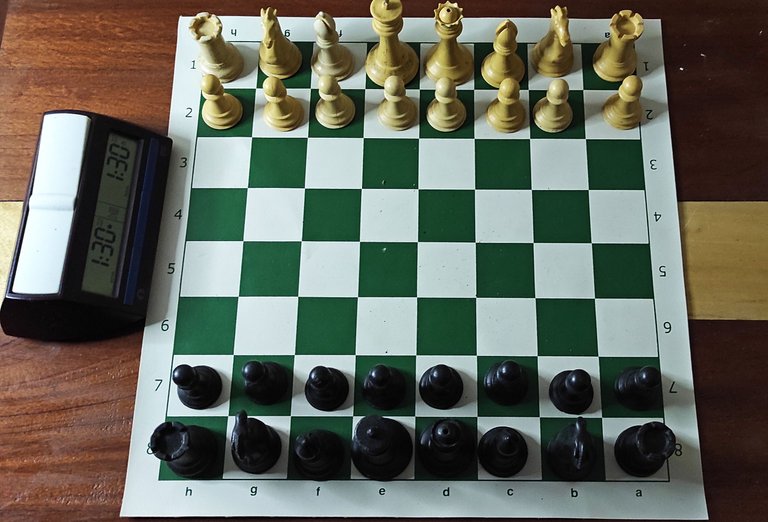
Lot of time to think
Championship games are defined by a specific time control. Thanks to the invention of the chess clock, the games don't take as long as in the past was. For example, a single game used to last days or even weeks and currently this is not attractive from an economic point of view. Nowadays there is a great variety of time controls that go from the short ones (1 minute, 5 minutes, 10 minutes) to long ones (1 hour, 2 hours or even more). Adding the time available to both players (and if it has an additional time bonus per move), an international championship game can easily last more than 5 hours.
We have said that a Chess Grandmaster is a kind of "calculating machine". His skills on the board are far above those of an ordinary chess player. If we add all that preparation to a prolonged time in the game, it is very possible that the amount of mistakes he can make (in human terms) is quite reduced. So the result of victory becomes very difficult in the elite levels. In fact, in recent years we have seen a significant increase in the number of draws and that is why professional chess players are training very hard as it is becoming increasingly difficult to win or lose.
That's also why tournaments with shorter time controls are more attractive, because "mistakes" are easier to make and the games can be more decisive. Witnessing a pile of draws can be somewhat boring to many people. Fans always want to see the full result.

The mistake will always be there
Definitely, people will always make mistakes no matter how prepared a chess player is. Factors such as fatigue, misunderstanding of a position, time pressure, fear, desperation are some of the many reasons that explain the mistakes on the chess board.
This seems to me the key point that explains how the 69th player in the world ranking can draw with the champion of all time. No matter how good Magnus Carlsen is, he will make a mistake from time to time. Maybe he will make fewer mistakes than most chess players, but it is enough just a minimal slip for the game to end with an unfavorable result.
Unlike other sports, chess is extremely sensitive in this sense, because one mistake is enough to make the building fall down like a sand castle.
The less favorite players can give blows to the strongest ones and this makes the results of the tournaments more difficult to predict. Factors such as opening preparation with computer assistance, plenty of time to think in the game and the possibility of mistakes make it possible that top 100 players can face with positive results the very top figures of chess.
if you have reached this point of the post I thank you very much for reading. Let me know what you think about this topic. In what other sport can lower-ranked players play on equal footing with the best in the world?
Related Posts
Chess is more similar to soccer than you think

https://twitter.com/VictorAbiad/status/1488609254324019209
The rewards earned on this comment will go directly to the person sharing the post on Twitter as long as they are registered with @poshtoken. Sign up at https://hiveposh.com.
I think anything is possible as weaker players will think differently. I played tennis socially but raised my game to beat league players when I was younger as quality can bring out the best in you. Under estimating an opponent is a clear weakness and why upsets happen regularly.
Yes, I agree. I think I forgot to include this other one. Underestimating the opponent is extremely bad for the development of the match. I for example have lost several games because I underestimated my opponent on the board.
Another interesting thing to mention is that the "weaker players" have nothing to lose and much to gain. In this sense it can be said that these players can take even more risks while the other players, the favorites, have to worry about keeping their streak, their image and all those subjective things that have nothing to do with the game itself.
Thanks for stopping by 👍
These days even the tennis bookies use the form of the players to draft the odds. Rankings don't justify the match outcome always.
That's why I love Rafa Nadal, he tries to install fear into anyone he plays by beating them in straight sets!
That's a really good point and true across all sports. I see it all the time when a team thinks they have a match won before they've even laced their boots.
Yep. Counting your chickens before they have even hatched. It is an easy trap to fall into and why their are upsets.
To be honest, it is difficult being Magnus Carlsen! He actually still things about getting to 2900! LOL
@vjap55 , your post is really great! I can't think of a better way to explain chess the way you're doing, you connect it to other sports, that's a great feat man!
You're totally right! Anything can happen in a game of chess, I once lost a game that I had control of for 5 hours. I lost with a funny blunder, just when my opponent planned to resign.
Thank you so much @samostically.i think that chess needs more people that can build bridges with other sports to help everybody to understand it better you know. I know what you mean, a blunder is enough to lost a game it really really hurts.